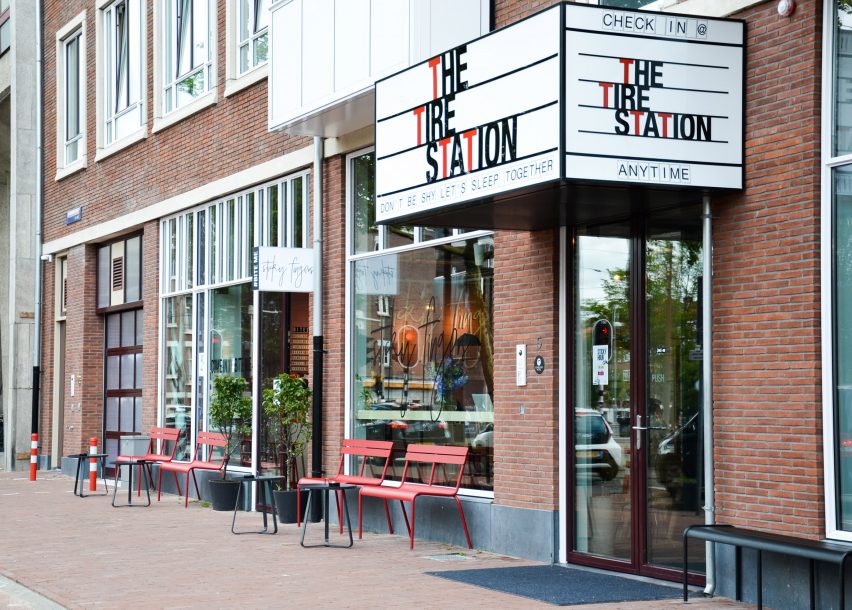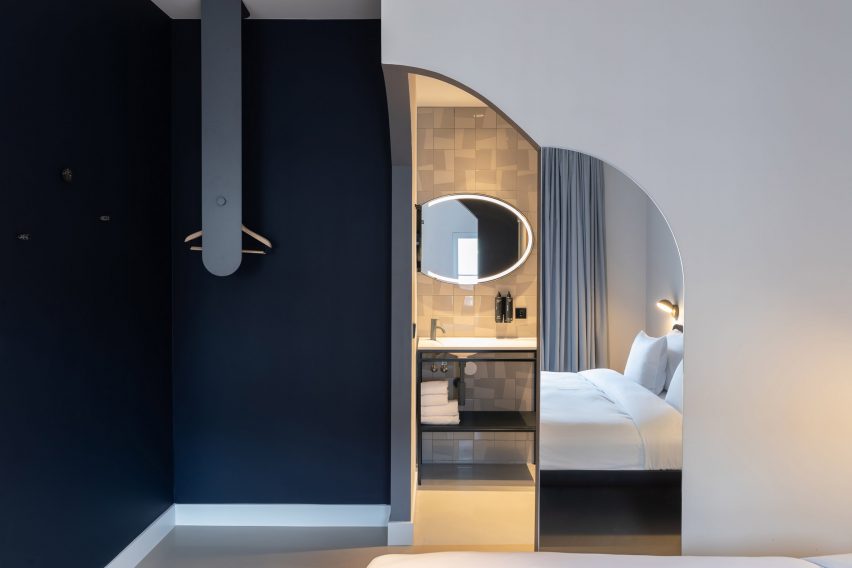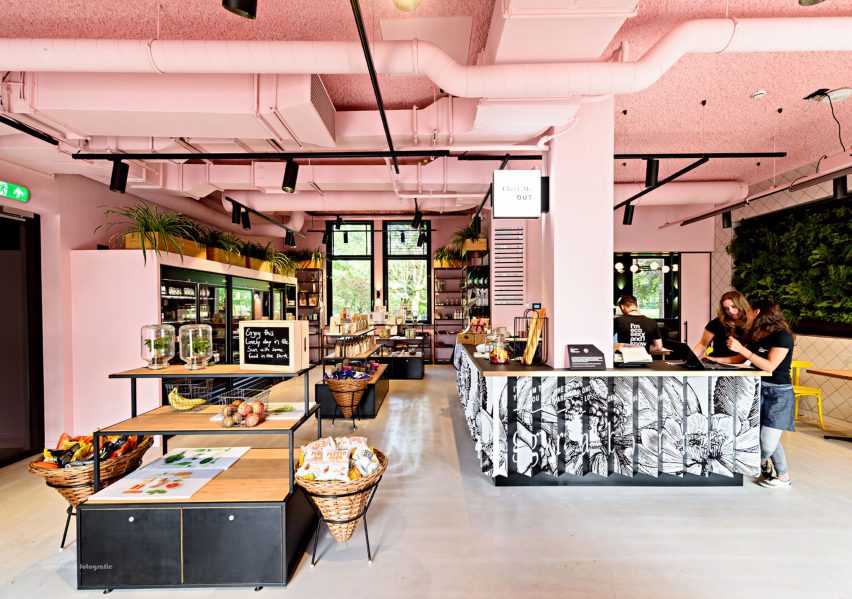Only “hardcore sustainable” customers are currently willing to pay extra for eco-conscious hotels, according to Marco Lemmers, CEO of hospitality company Conscious Hotels.
Lemmers predicts that hotel guests will be prepared to pay more for sustainability in the future, but it will be “a few years from now”.
“I think people will be prepared to pay more for a sustainable solution,” he told Dezeen.
“We’re not there yet, because the hotel business is still quite price-sensitive. You have to be hardcore sustainable to want to pay €10 euros extra for a sustainable stay. But slowly it’s moving in that direction.”

Lemmers, who founded Conscious Hotels in 2009, spoke to Dezeen during The Lobby hospitality design conference in Copenhagen in August.
Conscious Hotels has four properties in Amsterdam. These hotels have eco-friendly policies in place for all of their operations, including interior fit-out, energy and water use, food and drink, and cleaning processes.
According to Lemmers, the company’s sustainability ethos has enabled it to build a loyal customer base.
“We’re the most sustainable option in Amsterdam, so we see a lot of returning guests” he said.
The brand’s mantra is “eco-sexy, big smiles”
However this alone is not enough to make the business thrive, Lemmers explained. Conscious Hotels aims to be competitive in terms of design and cost, so it can also attract non-eco-minded customers.
“The only way to make change is to seduce people,” he said.
“We have our sustainable planet promises but we also have to make it sexy. Sexy is about having beautiful places, beautiful food and drink, and beautiful people.”
Looking forward, Lemmers predicts that changes in legislation will soon give eco-minded hotels a competitive advantage over rivals.
He believes that hotel owners in Europe will soon be legally obligated to meet much stricter rules on the sustainability of their buildings and operations.
“We’ve already seen it happen in the Netherlands with offices and the same will happen with hotels,” he stated.
“Even if you don’t believe in sustainability, do a SWOT analysis in the next business planning cycle and see the threat.”

The CEO says that hotels lagging behind need to urgently rethink their approach, or risk playing catchup.
“There’s an opportunity now – if you have sustainability in order, you have a competitive advantage,” he said. “Pretty soon legislation will push you to go there anyway, and there’s usually not a lot to be gained by being one of the last movers.”
Conscious Hotels implements a number of guidelines in order to reduce its environmental impact.
All the materials used for hotel fit-out are either natural products with cradle-to-cradle certification, or they are recycled or second-hand.

Conscious Hotel Westerpark is 100 per cent electric-powered, with most of its energy supplied by the brand’s own windmill, while two of the other hotels generate energy from rooftop solar panels.
Restaurants serve organic food, with more than 50 per cent vegan or vegetarian dishes, and almost all produce is sourced from local suppliers.
Other initiatives include green walls, passive heating and cooling systems, organic cleaning products, water-saving showerheads and faucets, refillable toiletries and waste separation.

While Lemmers acknowledges that some of these initiatives require time and investment, particularly for large hotel chains, he claims that others are easy to implement.
He believes that all hotels could easily take at least one step towards improving their sustainability credentials.
“Start with the operation; you can do it today,” he said. “Just procure stuff that’s local instead of having it come from the other side of the world.”
“FF & E (furniture, fixtures and equipment) comes slightly later, but you have to invest in that every seven years anyway, to maintain and renew.”
Conscious Hotels currently has 318 rooms across its four Amsterdam hotels, although the brand plans to increase this to 1,500 as part of a Europe-wide expansion.

